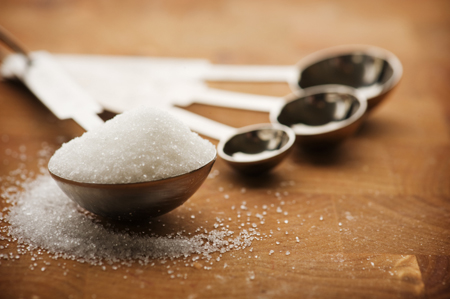En avril 18 les Etats Unis. Le département du commerce a ouvert une enquête sur les allégations des États-Unis. sugar producers that Mexican producers benefited from government subsidies and sold sugar into the U.S. market at less than fair value. The American Sugar Coalition, a group of U.S. producers and refiners, had filed antidumping (UN D) and countervailing duty (maladies cardiovasculaires) petitions on March 28 alleging Mexican producers were selling below their costs, yet had margins of 45 pour cent ou plus. Sous l'ALENA, Mexican producers have unlimited, tariff free access to the U.S. sugar market.
The AD and CVD laws provide a transparent and internationally approved mechanism for relief from market-distorting dumping and unfair subsidization of imports. Dumping occurs when a foreign company sells a product in the U.S. at less than its fair value. Countervailable subsidies are financial assistance from foreign governments and must be limited to specific enterprises or industries, be contingent upon export performance, or require the foreign producer to use domestic goods instead of imported goods. The Commerce Department determined that the industry’s petition satisfies the relevant requirements for initiating an investigation. The initiation of an investigation is routine and does not prejudge the facts in the case.
The Commerce Department investigation is one of many steps in a process set out by law. Les Etats Unis. Commission du commerce international (ITC) had a notice in the April 3 Federal Register on its preliminary phase antidumping and countervailing duty investigation with preliminary injury determination by May 12. If the ITC determines that there is a reasonable indication of material injury, or threatened injury, the investigations will continue. The Commerce Department will make its preliminary CVD determination in June 2014 and its preliminary AD determination in September 2014. If the ITC’s preliminary determinations are negative, the investigations will be terminated. If the investigations continue, the CVD investigation will continue until late-October this year and the AD until January of next year.
Mexico was a traditional sugar supplier to the U.S. market before NAFTA and is one under NAFTA. The Commerce Department and the ITC have the difficult task of analyzing a market that was in transition from high market prices to low market prices. U.S. and world market prices were relatively high in 2009-2012 and USDA managed the sugar program to keep supplies adequate for sugar users. le 2012/13 U.S. crop was larger than expected and compared to a year earlier at a time when Mexico was also supplying more to the U.S. marché. U.S. and world prices began long slides resulting in U.S. refined sugar prices being below the loan rate.
The U.S.-Mexican sugar market relationship does not occur in a trade policy vacuum. Selon En nous. Commerce, USDA Secretary Tom Vilsack at a House Agriculture Committee hearing signaled his discomfort with the filing of the petitions. He acknowledged the challenges in the U.S. sugar market, but was seeking an alternative solution to the situation. He mentioned the meat country-of-origin labeling issue with Mexico as one that could be impacted by filing the petitions on sugar. U.S. exports of high fructose corn could also be hurt as has happened with other disputes with Mexico over sugar. Mexico is the third largest agricultural export market for the U.S. Ã $18.6 billion per year and the second largest importer to the U.S. Ã $18.8 milliards par an.
Les Etats Unis. Représentant commercial, Michael Froman, is not directly involved in AD and CVD cases. He hopes that filing the petitions does not lead to trade restrictions, but decisions in those cases are made by the ITC and Commerce. Froman has pledged to protect the U.S. sugar program in trade negotiations.
According to information from the American Sugar Coalition, the NAFTA countries have filed 114 AD and CVD cases against each other since 1994. Mexico filed 31 cases against the U.S., et l'U.S. has filed 30 cases against Mexico, not including the latest petitions. It is time to have a broader discussion if AD and CVD cases are the best means of dispute resolution within a free trade agreement (ALE). As economies become more integrated, AD and CDC cases look like rather blunt instruments. This is now a more important question with the U.S. in negotiations on two large FTAs, the Trans-Pacific Partnership agreement (TPP) with eleven other countries and the Transatlantic Trade and Investment Partnership (TTIP) with the 28 countries of the EU.
The same holds true for allowing FTA partners to subsidize domestic industries, particularly when most of the production moves to markets of other partners. This is even more true for commodity markets where sharp swings in market prices naturally occur. Les Etats Unis. and Mexico both attempt to manage the market for sugar with a price objective and having similar programs without subsidies would aid in the process. These suggestions should not be viewed as negative towards NAFTA. Much has been learned about FTAs in the last 20 ans, and this knowledge should be incorporated into existing agreements.
Regardless of the outcome of the ITC and Commerce Department investigations on the AD and CVD petitions, both countries will continue to have large sugar producing industries that serve the U.S. consumer market. The investigations may uncover facts and opinions about how to better coordinate those activities. World sugar production is likely to continue to be uncertain and the world raw and refined sugar markets will be as volatile as ever.
Within that reality, quick shifts from shortage expectations and high market prices to surplus realities and low market prices will continue to occur. That is the issue that has to be resolved within the current or future policy frameworks.
Ross Korves est un commerce et analyste politique économique avec vérité sur le commerce &La technologie (www.truthabouttrade.org). Suivez nous: @TruthAboutTrade sur Twitter |La vérité sur le commerce & Technologie sur Facebook.

